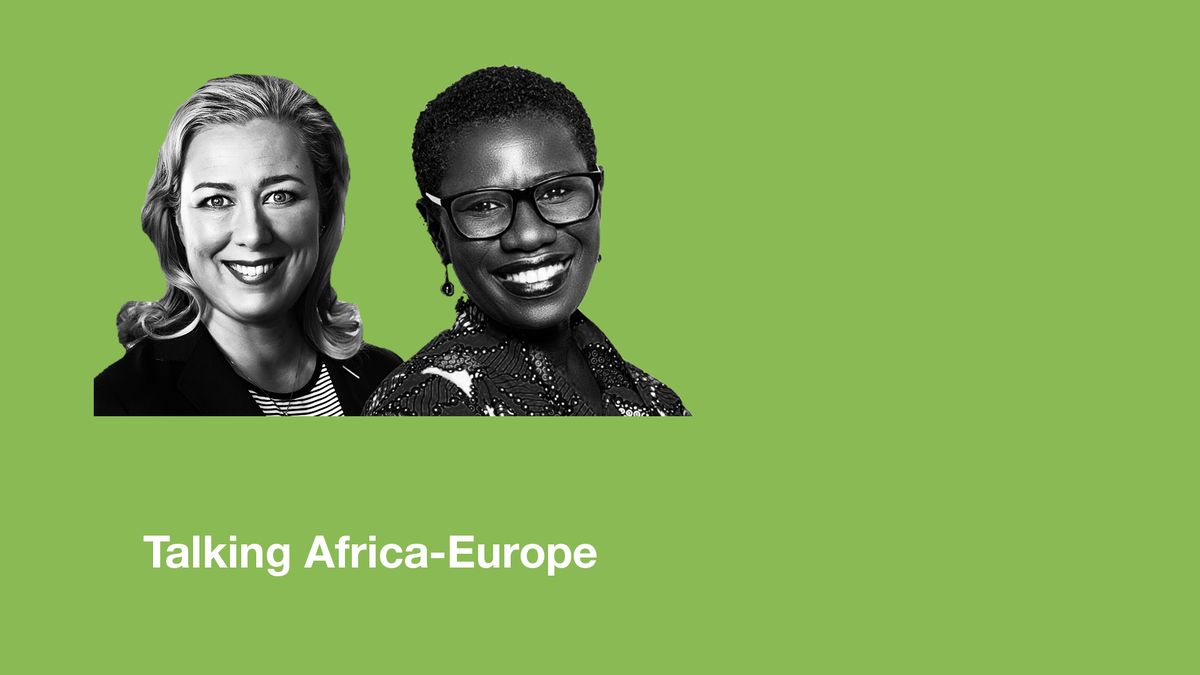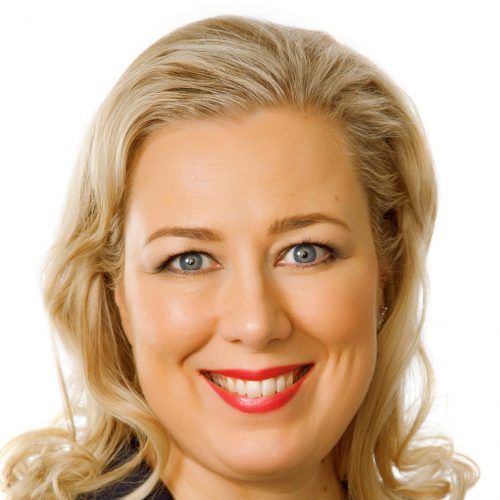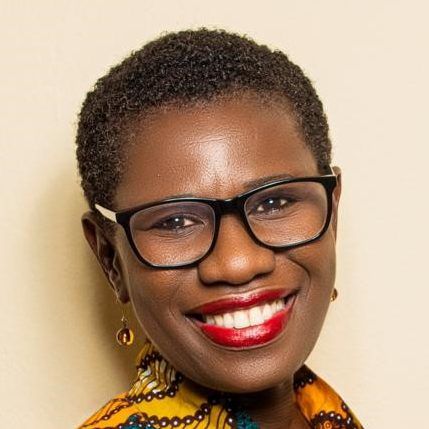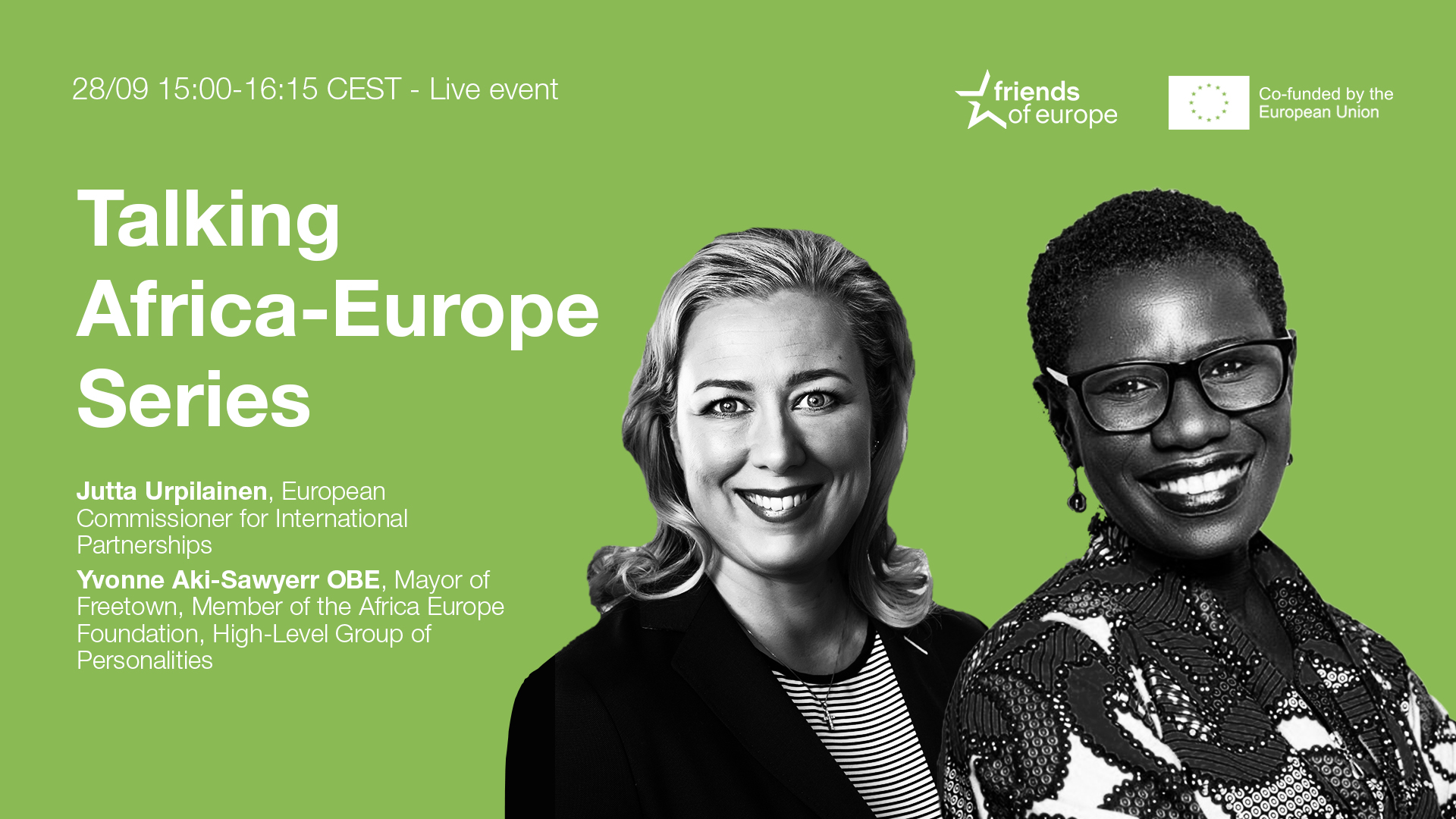
Summary
The first of a monthly series entitled “Talking Africa-Europe — Localising the Africa-Europe Partnership” examined the role and potential of cities, particularly in Africa, in tackling contemporary challenges linked to demography, climate change, employment, healthcare, housing and transport, as well as global pandemics.
The aim of the series of events is to consider how to build momentum towards the next EU-AU Summit early next year and explore how local leadership of cities can contribute in a meaningful way, given that cities are on the frontline of these challenges.
“The past year has shown us that we need new ways of forging global relationships,” (06:55) said Yvonne Aki-Sawyerr, the current Mayor of Freetown in Sierra Leone.
“As countries grapple with the impact of Covid-19 and face prospects of further shocks such as climate change, cities are increasingly showing that we can help to chart a path forward. But we can’t do it alone.” (07:24)
She further explained how cities need to work together and with international institutions such as the EU and AU, adding that there is a need to think about different modes of cross-border cooperation, particularly in the wake of the pandemic.
Aki-Sawyerr mentioned how in Freetown there has been a significant level of community engagement and a number of focus groups, and gave the example of how the city is committed to planting one million trees in the next two years to increase vegetation and the carbon sink.
In terms of cities working together successfully, she gave the example of Milan and Freetown which have set up a mobility scheme with the aim of developing the fashion industry in the Sierra Leonean capital.
Not every city is equal, however.
“Whilst some cities can do a lot because they have a mandate, other cities struggle,” she said. “For example, during the pandemic, some cities could pass emergency controls, but others are dependent on national governments.” (12:46)
She also recalled how many cities do not have a mandate to control local development, meaning in practice that they cannot issue housing or building permits or control access to land. This in turn affects the quality of life in the city and can lead to migrants choosing to leave the country.
She also emphasised the role of finance, explaining that no intervention aimed at achieving the sustainable development goals happens without it.
“Our structures have not favoured cities, and not all cities can generate revenue,” she said. “There are restrictions. For example, UN institutions will work thorough national states rather than cities, and where there are political differences, this can result in less than efficient optimisation”. (14:33)
Sandra Kramer, a Director in the European Commission who was representing the EU Commissioner for International Partnerships Jutta Urpilainen during the event, mentioned how the Nigerian city of Lagos was home to 22 million people, 60% of whom are under 15.
“We want to work on common challenges, such as climate change and the digital transformation,” she said. “It’s about budgets and access to finance. We need to transform these challenges into opportunities for a sustainable and fair recovery.” (43:08)
“Development comes from effective decentralisation,” concluded Aki-Sawyerr (01:13:02). “Mayors need to be delivery-focused, and the jobs needs to be more about getting the work done, rather than creating the enabling environment to get it done.” (01:14:01)
“We need to move from rhetoric and sentiment to more proactive actions, including putting pressure on national states. If you cannot exercise development control, control building permits, and be responsible for land use, how do you run cities? This is food for thought.” (01:15:00)
About
Launching this September, the latest series of “Talking Africa-Europe” will broadcast live on a monthly basis with a strategic focus is on the centrality of cities and city leadership within a strengthened Africa-Europe partnership.
Cities matter: by 2050, two-thirds of the world’s population will live in cities. While not all cities grow at the same pace across Africa and Europe, they share similar challenges and opportunities – from demography, climate change, employment, healthcare, housing and transport, as well as global pandemics.
The 2021 ‘Talking Africa-Europe’ dialogues will bring together a host of diverse voices from city mayors, youth representatives, EU and AU Commissioners, as well as civil society and business leaders to open up and deepen the space for discussion on the future of this crucial relationship.
“Talking Africa-Europe” builds directly on the pilot series run in 2020, widely acclaimed for its community-building, dynamic format and capacity for facilitating “a different type of conversation” involving international policy-makers, the private sector, civil society networks and young leaders from across the neighbouring continents.
Related content
Past Event Recordings:
- AEF Forum – Cities: New Narratives for a Stronger Africa-Europe Partnership
- Talking Africa-EU N8: A Stronger Alliance: Enhancing Resilience, Peace, and Security in the Africa-EU Partnership
- Talking Africa-EU N6: Sustainable jobs & growth: a partnership for a new era
- Talking Africa-EU N5: Beyond borders: migration, mobility and good governance in the Africa-EU partnership
- Talking Africa-EU N4: Health, welfare and prosperity: an EU-Africa partnership for a people-centred approach to human development
- Talking Africa-EU N3: A new era of digital cooperation: embracing Africa and Europe’s 4th Industrial Revolution
- Talking Africa-EU N2: Creating a mutually beneficial partnership for Africa-Europe: Building a greener and fairer future
- Talking Africa-EU N1: The Next Generation of Africa Europe Relations, with Commissioner Jutta Urpilainen
Schedule
Both in Africa and Europe, the pace of institutional transformation continues to lag behind increasingly accelerating social, economic and demographic trends. Cities have a hand on the pulse of the challenges that this transformation is causing.
Mayors across the two continents are already working together, showing leadership and progress in areas where states and multilateral institutions struggle to find common ground and catalyse action. Traditional models of governance, democracy, and citizen engagement are falling short across African and European states. A new dynamic is required and a 20th century model solely based on top-down politics will fail to adequately respond to the challenges of the 21st century.
Pragmatic alliances with and between cities can reinvigorate a more equal partnership between Africa and Europe, making a real difference in the lives of people across both continents.
Questions include:
- How are cities in Africa and Europe presenting a new model of citizen engagement? What should traditional governance learn from local approaches?
- How can both continents streamline the value of city and local leadership in the next AU-EU Summit?
- What are examples of pioneering city led practices on climate and health which could be replicated at the Africa-Europe level?
Speakers
Jutta Urpilainen
European Commissioner for International Partnerships
Yvonne Aki-Sawyerr OBE
Mayor of Freetown, Member of the Africa-Europe Foundation High-Level Group of Personalities and Vice-Chair of the C40 Cities Steering Committee
moderator
Speakers

European Commissioner for International Partnerships

Mayor of Freetown, Member of the Africa-Europe Foundation High-Level Group of Personalities and Vice-Chair of the C40 Cities Steering Committee
Yvonne Aki-Sawyerr has served as Mayor of Freetown since May 2018. Driven by her commitment to transform the city, the three-year Transform Freetown plan adopts an inclusive and data-driven approach to tackle a variety of issues, including environmental degradation. She is a chartered accountant and finance professional with over 25 years of private sector experience in strategic planning, risk management consulting, and project management.
Partners

Continue
the debate on
- Debating Europe

